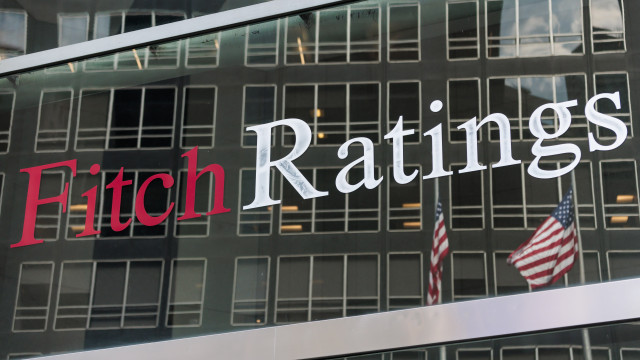The international rating agency Fitch Ratings confirmed the long-term credit rating of Bulgaria in foreign and local currency 'BBB' with a positive outlook, the Ministry of Finance announced.
Bulgaria's rating is supported by the country's strong external economic and fiscal position compared to countries with the same rating, the reliable political framework of EU membership and the long-term functioning of the currency board regime.
The positive outlook reflects the prospects for the country's membership in the Eurozone, which would lead to further improvements in the indicators of the country's external position. Despite a delay in the process of adopting the euro beyond January 2025 and renewed political uncertainty, Fitch Ratings reports that there is broad political commitment at the local and EU level to adopt the euro. All legislative measures that reflect the commitments after entering the Exchange Rate Mechanism II have been adopted. The Central Bank Law was passed in February 2024.
Adoption of the euro: Inflation (according to the HICP) in Bulgaria has fallen significantly, but remains above that of the three best performing EU member states. Fitch Ratings expects that the country will not meet the price stability criterion in mid-2024. Bulgaria intends to request an assessment of its progress on the convergence criteria in the second half of 2024, which should allow entry into the Eurozone by -late in 2025. According to Fitch Ratings, Bulgaria could fulfill the price stability criterion in the fourth quarter of 2024 at the earliest and depending on the development of inflation in other EU countries.
Bulgaria is expected to meet all other numerical criteria for adopting the euro (public finances, long-term interest rate and exchange rate). However, the lack of a stable government and potentially lengthy coalition negotiations could delay entry into the eurozone after 2025. Adoption of the euro is a factor supporting Bulgaria's rating.
Gradual recovery of growth: The Bulgarian economy grew by 1.8% in 2023, supported by strong household consumption, positive net exports and steady growth in government investment. Weak external demand, renewed political uncertainty and slow absorption of EU funds will slow economic activity in the first half of 2024, while positive real wage growth and strong credit growth will support private consumption. Fitch Ratings expects real GDP growth to accelerate to 2.4% in 2024 and to 3.1% in 2025.
Slower decline in inflation: HICP inflation was 3.1% in March 2024, above the EU27 level of 2.6% but below the peak of 15.6% in September 2022. This decline mainly due to base effects, lower energy commodity prices and slowing food inflation. Fitch Ratings expects inflation to continue to decline, albeit at a slower pace. According to the rating agency, the government's measures and the return of some tax rates to their standard levels should be broadly inflation-neutral. They expect average annual inflation to be 3.3% in 2024 and 2.9% in 2025, down from 8.6% in 2023.
Larger fiscal deficits in the medium term: The general government deficit was 1.9% of GDP in 2023. A stable labor market boosted income from personal income tax and social contributions, while higher social and capital expenditure weighed on the expenditure side of the budget. Fitch Ratings forecast a budget deficit of 2.9% in 2024 and 3% in 2025. Growing social needs, delays in the implementation of reforms and the lack of reliable medium-term fiscal planning due to the instability of recent governments have weakened Bulgaria's fiscal position in recent years.
Factors that could lead to positive action on the rating are: Further progress in joining the eurozone, such as confirmation that Bulgaria has met the membership criteria and greater certainty about the likely timing of euro adoption; increasing growth potential by implementing structural and management reforms to improve the business environment and/or efficient use of EU funds.
Factors that could lead to negative rating actions are: Lack of progress in joining the Eurozone due to continued political instability or failure to meet convergence criteria; weaker prospects for economic growth, as a result of unfavorable political developments, which complicate the implementation of reforms. /BGNES







